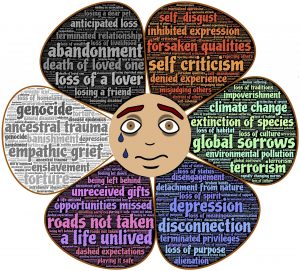Emotional intelligence is the capacity to be aware of, manage and express emotions to handle interpersonal relationships with sensitivity and empathy.
The awareness of emotions starts with the understanding of what it is. According to the American Psychological Association (APA), an emotion is a complex reaction pattern, involving experiential, behavioral, and physiological elements. It is how individuals deal with matters or situations they find personally significant.
Emotional Experiences have three components: a subjective experience, a physiological response, and a behavioral or expressive response.

All emotions start with subjective experience also known as the stimulus.
Although all people experience many different kinds of emotions the experience that brings about the emotions is highly subjective. Different people going through similar experiences will have different emotions.
This factor justifies all emotions as none can be considered negative or positive as it is a personal experience.
Understanding this factor of emotions is very important. It gives you freedom from fear of being different and allows you to appreciate the way others respond to different experiences.
Important to note though is the fact that we can develop our ability to choose a response to whatever stimulus we are subjected to. According to Stephen R. Covey “Between stimulus and response, there is a space. In that space lies our freedom and our power to choose our response.”
This is a vital emotional skill towards mastery of emotional intelligence.

The physiological response is directly related to the emotion being experienced.
The automatic nervous system regulates our physiological responses through the involuntary bodily responses commonly referred to as fighting, freezing, or fleeing.
As shall be seen later some emotions are energy-giving while others are energy-draining. Hence, a physiological response will largely depend on the emotion you are experiencing.
For those that are energy giving there is the option of fight or flight. For those that are energy draining, there is an option of freezing. As you develop your emotional intelligence you become aware of your physiological responses to different emotions. This gives you the psychological preparedness to adopt and respond appropriately in varying life circumstances.
Behavioral responses refer to the expression of the emotion. Although many expressions are universal, sometimes behavioral response is affected by culture and personality. In many environments, the behavioral responses can be subjected to a lot of prejudice. This discourages people from expressing their emotions accordingly.
However, emotional intelligence calls for behavioral responses with sensitivity and empathy and not suppression and faking emotional expressions.
The understanding of these three components of emotions forms a basis of emotional awareness.
This information enables you to know what is happening as you go through emotional processes in life.
Emotional experiences are inevitable in life and the awareness thereof is an important part of personal development.



Very important information especially in this time of life uncertainties and pressure.
Thank You Maurice, you can engage with us in our PICO programme and psychological counselling to learn more about emotional intelligence.